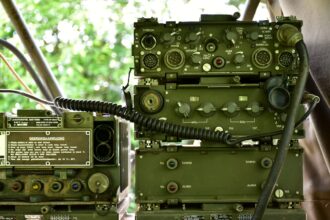The evolution of firepower has been a significant aspect of human history, shaping societies and influencing power dynamics across the globe. From the rudimentary tools of early humans, such as spears and bows, to the sophisticated firearms of the modern era, the development of weaponry has mirrored advancements in technology and societal organization. In ancient civilizations, firepower was often a privilege reserved for the elite, with kings and warriors wielding weapons that symbolized their authority and control.
As societies evolved, so too did the means of warfare and self-defense, leading to a gradual shift in how firepower was perceived and utilized. The Industrial Revolution marked a pivotal moment in the evolution of firepower, as mass production techniques enabled the creation of firearms on an unprecedented scale. This democratization of weaponry meant that firearms were no longer exclusive to the ruling classes; they became accessible to a broader segment of the population.
The proliferation of guns changed the landscape of power, allowing ordinary citizens to assert themselves in ways that were previously unimaginable. This shift not only altered the dynamics of conflict but also influenced social structures, as individuals began to view firearms as tools for self-empowerment and protection.
Key Takeaways
- The evolution of firepower in society has led to significant changes in the way individuals and groups access and use weapons.
- Technology has played a crucial role in democratizing firepower, making it easier for people to acquire and use firearms.
- Citizen empowerment has had a direct impact on firearm ownership, with more individuals taking control of their own safety and security.
- Social movements have influenced the democratization of firepower, advocating for greater access to firearms for self-defense and protection.
- The intersection of politics and the democratization of firepower has led to debates and policies that shape the accessibility and use of firearms in society.
The Role of Technology in Democratizing Firepower
Technology has played a crucial role in democratizing firepower, transforming how weapons are manufactured, distributed, and utilized. The advent of 3D printing technology, for instance, has revolutionized the production of firearms, enabling individuals to create their own weapons at home with relative ease. This innovation has raised significant questions about regulation and control, as traditional methods of monitoring firearm distribution become increasingly obsolete.
As technology continues to advance, the barriers to accessing firepower are likely to diminish further, leading to a more widespread availability of weapons. Moreover, the internet has facilitated the exchange of information regarding firearms, empowering individuals with knowledge about weaponry that was once confined to military or law enforcement circles. Online forums and social media platforms have become spaces for discussions about firearm ownership, safety practices, and legal rights.
This democratization of information has fostered a sense of community among gun owners and enthusiasts, encouraging responsible ownership while also advocating for individual rights. As technology continues to evolve, it is expected that new innovations will further shape the landscape of firepower accessibility.
The Impact of Citizen Empowerment on Firearm Ownership

Citizen empowerment has had a profound impact on firearm ownership, reshaping societal attitudes toward guns and self-defense. In many regions, individuals have come to view firearms as essential tools for personal safety and autonomy. This shift in perception has been fueled by various factors, including rising crime rates, political instability, and a growing distrust in governmental institutions.
As citizens increasingly feel the need to protect themselves and their families, the demand for firearms has surged, leading to a significant increase in ownership rates. This empowerment is not merely about possessing a weapon; it encompasses a broader understanding of individual rights and responsibilities. Many gun owners advocate for their right to bear arms as a fundamental aspect of personal freedom.
This perspective has led to grassroots movements aimed at promoting responsible firearm ownership and education. As citizens take an active role in shaping firearm policies and practices within their communities, they contribute to a culture that values both empowerment and accountability.
The Influence of Social Movements on the Democratization of Firepower
| Metrics | Data |
|---|---|
| Number of social movements advocating for gun control | 15 |
| Number of countries with stricter firearm regulations due to social movements | 23 |
| Percentage decrease in firearm-related deaths in countries with strong social movements | 30% |
| Number of successful lobbying efforts by social movements for gun policy reform | 8 |
Social movements have played a pivotal role in shaping the discourse around firearm ownership and access. Various groups have emerged over the years, advocating for different perspectives on gun rights and regulations. For instance, organizations like the National Rifle Association (NRA) have championed the rights of gun owners, emphasizing the importance of self-defense and personal freedom.
Conversely, movements advocating for stricter gun control measures have emerged in response to rising gun violence, calling for regulations that prioritize public safety. These social movements have not only influenced public opinion but have also impacted legislation at local, state, and national levels. The ongoing debates surrounding gun rights often reflect deeper societal issues, such as race relations, economic inequality, and public health concerns.
As these movements continue to evolve, they contribute to a dynamic conversation about the role of firepower in society and its implications for democracy and individual rights.
The Intersection of Politics and the Democratization of Firepower
The intersection of politics and the democratization of firepower is complex and multifaceted. Political ideologies often shape attitudes toward gun ownership and regulation, with different parties advocating for varying degrees of access to firearms. In some political climates, gun rights are fiercely defended as a cornerstone of personal liberty, while in others, there is a push for stricter regulations aimed at curbing violence.
Legislation surrounding firearms is often influenced by public sentiment and advocacy efforts from both sides of the debate. Politicians may align themselves with specific interest groups to garner support or votes from constituents who feel strongly about gun rights or gun control. This political landscape creates a dynamic environment where discussions about firepower are not only about individual rights but also about broader societal values and priorities.
The Global Perspective on People’s Power and Firearm Access

Globally, perspectives on firearm access vary significantly based on cultural norms, historical contexts, and legal frameworks. In some countries, such as the United States, gun ownership is deeply ingrained in the national identity and is often viewed as a fundamental right. In contrast, many nations impose strict regulations on firearm ownership, prioritizing public safety over individual access to weapons.
This divergence highlights how cultural attitudes toward firepower can shape policies and influence societal norms. The global conversation about firearm access also intersects with issues of power dynamics and inequality. In regions plagued by conflict or authoritarian regimes, access to firearms can be a matter of survival for marginalized communities seeking to protect themselves from oppression.
Conversely, in more stable societies, discussions about firearm access often center around balancing individual rights with collective safety. This global perspective underscores the complexity of democratizing firepower and the need for nuanced approaches that consider local contexts.
The Ethical and Moral Considerations of Democratizing Firepower
The democratization of firepower raises significant ethical and moral questions that society must grapple with.
This perspective emphasizes personal autonomy and the belief that individuals should have the means to defend themselves in an increasingly uncertain world.
On the other hand, critics raise concerns about the potential consequences of widespread firearm access. The ethical implications of increased gun ownership include considerations about public safety, the potential for violence, and the impact on vulnerable populations. The moral dilemma lies in balancing individual freedoms with collective responsibility; societies must navigate these complex issues while striving to create environments where both personal safety and community well-being are prioritized.
The Legal and Regulatory Challenges of Democratizing Firepower
As societies grapple with the democratization of firepower, legal and regulatory challenges abound. Crafting legislation that effectively balances individual rights with public safety is no small feat. Policymakers face pressure from various interest groups advocating for either more lenient or stricter regulations on firearm ownership.
This tug-of-war often results in contentious debates that can stall meaningful progress. Moreover, enforcement of existing laws presents its own set of challenges. In many jurisdictions, loopholes exist that allow individuals to circumvent regulations intended to promote responsible ownership.
The rise of online marketplaces has further complicated efforts to regulate firearm sales effectively. As technology continues to evolve alongside societal attitudes toward firepower, lawmakers must remain vigilant in adapting legal frameworks that address emerging challenges while respecting individual rights.
The Relationship Between Firepower and Social Justice
The relationship between firepower and social justice is intricate and often contentious. For marginalized communities facing systemic oppression or violence, access to firearms can be seen as a means of empowerment and self-defense. In these contexts, guns may represent a tool for asserting agency in environments where traditional avenues for justice are lacking.
Conversely, discussions about gun violence often highlight disparities in how different communities experience its consequences. High rates of gun violence in certain neighborhoods can perpetuate cycles of trauma and disadvantage. Addressing these disparities requires a nuanced understanding of how firepower intersects with issues such as race, class, and socioeconomic status.
Advocating for social justice within the context of firearm access necessitates comprehensive approaches that consider both individual rights and collective responsibility.
The Role of Education in Responsible Firearm Ownership
Education plays a critical role in promoting responsible firearm ownership within society. As access to firearms becomes more widespread due to technological advancements and changing attitudes, ensuring that individuals are informed about safe handling practices is paramount. Educational initiatives can empower gun owners with knowledge about proper storage methods, maintenance procedures, and legal responsibilities associated with firearm ownership.
Moreover, education can foster a culture of accountability among gun owners. By emphasizing the importance of responsible ownership through training programs and community workshops, individuals can better understand their role in promoting safety within their communities. This proactive approach not only reduces the risk of accidents but also encourages dialogue around firearm-related issues that can lead to more informed decision-making at both individual and societal levels.
The Future of People’s Power and the Democratization of Firepower
Looking ahead, the future of people’s power and the democratization of firepower remains uncertain yet full of potential. As technology continues to advance at an unprecedented pace, new challenges will emerge regarding access to firearms and their implications for society. The ongoing dialogue surrounding gun rights will likely evolve alongside shifts in public sentiment influenced by social movements, political landscapes, and global perspectives.
Ultimately, finding common ground will be essential in navigating this complex terrain. Striking a balance between individual freedoms and collective safety will require collaboration among stakeholders from diverse backgrounds—gun owners, policymakers, community leaders, and advocates for social justice alike. As societies continue to grapple with these issues, fostering open conversations about responsible firearm ownership will be crucial in shaping a future where people’s power is respected while ensuring that safety remains a priority for all members of society.
In the context of discussing the democratization of firepower, it’s essential to consider the broader implications of technological advancements in warfare and their accessibility to non-state actors. An insightful article that delves into these themes can be found on the website “In The War Room.” This piece explores how modern technology has shifted the balance of power, making sophisticated weaponry and strategic capabilities available to a wider range of entities. For a deeper understanding of these dynamics, you can read the related article on their website.
FAQs
What is the democratization of firepower?
The democratization of firepower refers to the increasing accessibility and availability of advanced weaponry and firearms to a wider range of individuals and groups, beyond traditional military and law enforcement organizations.
What are some examples of the democratization of firepower?
Examples of the democratization of firepower include the proliferation of small arms and light weapons among non-state actors such as rebel groups, terrorist organizations, and criminal syndicates, as well as the development and dissemination of 3D-printed firearms and other DIY weapons.
What are the implications of the democratization of firepower?
The democratization of firepower raises concerns about the potential for increased violence, conflict, and insecurity, as well as the challenges it poses for traditional arms control and non-proliferation efforts. It also raises questions about the balance between individual rights and public safety.
How does the democratization of firepower impact global security?
The democratization of firepower has the potential to disrupt traditional power dynamics and security paradigms, as non-state actors and individuals gain access to increasingly lethal and sophisticated weapons. This can complicate efforts to maintain peace and stability at the national and international levels.
What measures are being taken to address the challenges posed by the democratization of firepower?
Efforts to address the challenges posed by the democratization of firepower include strengthening arms control and non-proliferation regimes, enhancing law enforcement and border security measures, promoting responsible firearms ownership and use, and regulating the production and dissemination of 3D-printed firearms and other DIY weapons.




